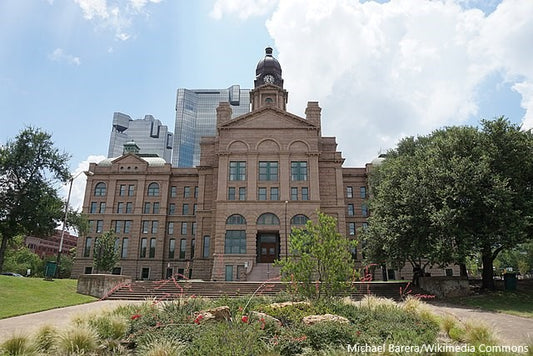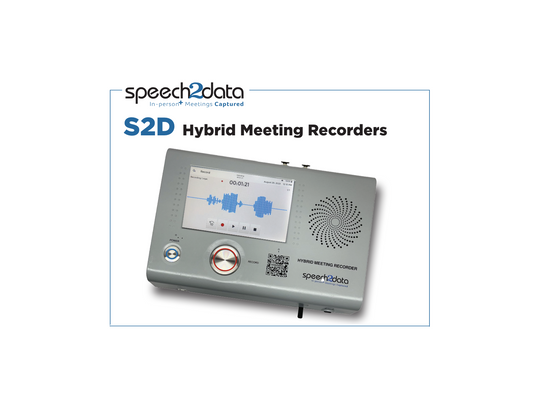Navigating FEMA and Homeland Security Grants: A Comprehensive Guide for Small Towns
Share
In recent years, small towns across the United States have faced increasing challenges in preparing for and responding to natural disasters and security threats (SAMHSA, 2017). To address these issues, federal agencies like the Federal Emergency Management Agency (FEMA) and the Department of Homeland Security (DHS) offer a variety of grant programs aimed at enhancing resilience and security at the local level (FEMA, 2023). In this article, we will delve into the intricacies of identifying and applying for FEMA and Homeland Security grants, providing small towns with the knowledge and tools needed to access vital funding opportunities.
Understanding FEMA and Homeland Security Grants:
FEMA and DHS administer several grant programs to support state, local, tribal, and territorial efforts in disaster preparedness, mitigation, response, and recovery. These grants provide crucial resources to help communities build resilience and enhance security measures. Let's explore some of the key grant programs available:
- Hazard Mitigation Grant Program (HMGP):
The objective of HMGP is to provide funding for hazard mitigation projects that reduce the risk of future disasters (USEPA, 2023). Eligible applicants include state, local, tribal, and territorial governments, as well as certain private nonprofit organizations. As part of the application process, applicants must submit a mitigation plan and project proposal to their respective FEMA Regional Office. Effective application content emphasizes the project's alignment with the community's hazard mitigation priorities and demonstrates cost-effectiveness and sustainability (USEPA, 2023).
https://www.fema.gov/grants/mitigation
Sample Project: Retrofitting Public Buildings for Seismic Resilience
Description: The project aims to enhance the structural integrity of public buildings in earthquake-prone areas through seismic retrofitting measures.
Effective Application Content:
- Comprehensive risk assessment highlighting the vulnerability of existing structures to seismic hazards.
- Detailed engineering plans outlining retrofitting techniques and materials.
- Cost-benefit analysis demonstrating the long-term benefits of retrofitting in terms of risk reduction and cost savings.
- Evidence of stakeholder support, including endorsements from local government officials and community leaders.
Helpful Individuals/Departments and Contact Info:
FEMA Hazard Mitigation Assistance Helpline: 1-800-621-3362
State Hazard Mitigation Officer (SHMO): Contact information available through state emergency management agencies.
- Emergency Management Performance Grant (EMPG):
The objective of EMPG is to support developing and enhancing emergency management capabilities at the state and local levels (FEMA, 2023). States and territories receive formula-based grants, which are then distributed to local emergency management agencies.
The application process entails that states submit annual applications to FEMA outlining proposed activities and budgets. It also includes highlighting the intended use of funds for training, exercises, planning, and equipment purchases to improve emergency management capabilities (FEMA, 2023).
https://www.fema.gov/grants/preparedness/emergency-management-performance
Sample Project: Enhancing Emergency Communication Systems
Description: The project seeks to improve communication systems utilized by emergency management agencies to enhance coordination and response capabilities during disasters.
Effective Application Content:
- Description of current communication systems and identified gaps or limitations.
- Proposed enhancements, such as upgrading radio equipment, implementing interoperable communication protocols, and establishing redundant communication channels.
- Training plans for emergency management personnel to ensure proficiency in operating new systems.
- Budget breakdown detailing costs associated with equipment procurement, installation, and training.
Helpful Individuals/Departments and Contact Info:
FEMA Grants Information Line: 1-800-621-3362
State Emergency Management Agency: Contact information is available through state government websites.
- Flood Mitigation Assistance (FMA) Program:
The objective of FMA is to provide funding for projects that reduce or eliminate the risk of flood damage to structures insured under the National Flood Insurance Program (NFIP) (Homeland Security Grants, 2023). Eligible applicants include state, local, tribal, and territorial governments, as well as certain private nonprofit organizations. As part of the application process, applicants submit project proposals to their respective FEMA Regional Office during open application periods. The process also includes that you clearly outline the flood risk reduction measures proposed for implementation, emphasizing their effectiveness in protecting vulnerable structures Homeland Security Grants, 2023).
https://www.fema.gov/grants/mitigation/flood-mitigation-assistance
Sample Project: Acquisition and Demolition of Flood-Prone Structures
Description: The project involves acquiring and demolishing residential properties located in flood-prone areas to reduce flood risk and minimize potential damages.
Effective Application Content:
- Documentation of flood risk assessment, including historical flood data and floodplain mapping.
- Identification of target properties based on flood exposure and vulnerability assessments.
- Cost estimates for property acquisition, demolition, and site restoration.
- Community engagement strategy to solicit input from affected residents and secure buy-in for the project.
Helpful Individuals/Departments and Contact Info:
FEMA Floodplain Management and Insurance Branch: www.fema.gov/flood-mitigation-assistance
State Hazard Mitigation Officer (SHMO): Contact information available through state emergency management agencies.
- Building Resilient Infrastructure and Communities (BRIC) Program:
The objective of BRIC is to support projects that enhance the resilience of infrastructure and communities to natural hazards (FEMA, 2023). Similar to HMGP, eligible applicants include state, local, tribal, and territorial governments, as well as certain private nonprofit organizations. Applicants must submit project proposals through FEMA's Grants Portal during open application periods. They must also demonstrate how the proposed project aligns with the community's resilience goals, emphasizing innovative approaches and partnerships (FEMA, 2023).
https://www.fema.gov/grants/mitigation/building-resilient-infrastructure-communities
Sample Project: Implementation of Green Infrastructure for Stormwater Management
Description: The project aims to enhance community resilience to flooding and stormwater runoff by integrating green infrastructure practices into urban development projects.
Effective Application Content:
- Design specifications for green infrastructure elements, such as rain gardens, permeable pavements, and bioswales.
- Environmental impact assessment addressing potential benefits to water quality, biodiversity, and community aesthetics.
- Community engagement plan to involve residents and stakeholders in the planning and implementation process.
- Long-term maintenance strategy outlining responsibilities and funding sources for infrastructure upkeep.
Helpful Individuals/Departments and Contact Info:
FEMA Building Resilient Infrastructure and Communities (BRIC): www.fema.gov/bric
State Hazard Mitigation Officer (SHMO): Contact information available through state emergency management agencies.
- Homeland Security Grant Program (HSGP):
The objective of HSGP is to provide funding to enhance the capabilities of state and local governments to prevent, protect against, mitigate, respond to, and recover from terrorist attacks and other security threats (FEMA, 2023) States and certain urban areas receive formula-based grants, while others may apply for competitive grants. They may also submit investment justifications and budgets to DHS through the Grants.gov portal. Again, they need to clearly articulate how the proposed investments will enhance the jurisdiction's ability to address identified homeland security priorities, such as critical infrastructure protection and cybersecurity (FEMA, 2023).
https://www.fema.gov/grants/preparedness/homeland-security
- Urban Area Security Initiative (UASI):
UASI funds support high-threat, high-density urban areas in building and sustaining capabilities to prevent, protect against, mitigate, respond to, and recover from acts of terrorism (Homeland Security Grants, 2023). Eligible urban areas must meet specific risk criteria established by DHS. Urban areas submit investment justifications and budgets to DHS through the Grants.gov portal.
Effective Application Content: Prioritize investments based on identified threats and vulnerabilities, focusing on projects with measurable impacts on security preparedness and response (Homeland Security Grants, 2023).
https://www.homelandsecuritygrants.info/Grant-Details/gid/17162
- State Homeland Security Program (SHSP):
SHSP provides funding to support the implementation of homeland security strategies at the state and local levels (FEMA, 2023). States and territories receive formula-based grants based on risk and need assessments. States submit investment justifications and budgets to DHS through the Grants.gov portal.
Effective Application Content: Align proposed investments with the state's homeland security strategy, emphasizing collaboration and coordination with local partners (FEMA, 2023).
https://www.fema.gov/grants/preparedness/homeland-security
Identification of Helpful Individuals/Departments and Contact Info
- Federal Emergency Management Agency (FEMA)
Contact: FEMA Grants Information Line - 1-800-621-3362 | (866) 927-5646
Address: 500 C Street SW, Washington, DC 20472
Email:ask-gmd@dhs.gov
URL:https://www.fema.gov/flood-mitigation-assistance-grant-prog
Website: www.fema.gov/grants
- Department of Homeland Security (DHS)
Contact: DHS Grant Programs Directorate - www.dhs.gov/grants
Conclusion:
Navigating the landscape of FEMA and Homeland Security grants can be complex, but with the right information and guidance, small towns can access valuable resources to enhance resilience and security. By understanding each grant program's objectives, eligibility criteria, and application processes, communities can effectively leverage funding opportunities to address their unique needs and priorities. With diligent preparation and strategic planning, small towns can build a more resilient future for their residents and stakeholders.
At Speech2Data, we support small towns and communities in areas across the United States that are underserved for their access to federally funded services. While Speech2Data's hybrid meeting recorder is an ideal solution for these communities for use in their municipal and court settings, we strive to provide additional information that would assist in areas that include technology and beyond.




